Health NEWS
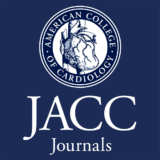
Update on the management of obesity in cardiovascular practice
On August 3, 2021, a JACC Seminar Focus on Management of Obesity in Cardiovascular Practice was published by Drs. Jean-Pierre Després, André C. Carpentier, André Tchernof, Ian J. Neeland and Paul Poirier. In this paper, the authors review the evidence that individual differences in body fat partitioning explain the heterogeneity in the cardiometabolic risk profile … Continued See More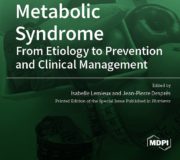
Special issue on metabolic syndrome
A special printed issue entitled “Metabolic syndrome: From Etiology to Prevention and Clinical Management” has been published and is now available on the open access journal Nutrients (IF: 4.546). Several board members of the International Chair on Cardiometabolic Risk (ICCR) contributed to the production of this special issue, which was co-edited by Drs. Isabelle Lemieux … Continued See More
IAS/ICCR paper published in Nature Reviews Endocrinology: Most accessed article of 2020
On January 1, 2021, Nature Reviews Endocrinology announced that their most accessed article of 2020 was the consensus paper resulting from the collaboration between the International Atherosclerosis Society (IAS) and the International Chair on Cardiometabolic Risk (ICCR). Several members of the ICCR are among the authors: Drs. Robert Ross, Benoit Arsenault, Jaap Seidell, Frank B. … Continued See More
Global Highly Cited Researchers 2020 list reveals top talent in the sciences and social sciences
Congratulations to Jean-Pierre Després, Peter Libby, Frank B. Hu, Philippe Gabriel Steg, Vincenzo Di Marzo, Ronald Krauss and Miguel Ángel Martínez-González, board members of the International Chair on Cardiometabolic Risk, who remained among the most cited scientists in the world in 2020 according to Clarivate Analytics. The list of Highly Cited Researchers 2020 from the … Continued See More
Could bacteria promote type 2 diabetes?
A recent study involving members of the International Chair on Cardiometabolic Risk, Drs. André Tchernof and André Marette, was recently published in Nature Metabolism. The investigators found that bacteria could be involved in the development of type2 diabetes. In the study, which involved 40 individuals with severe obesity, a different bacterial signature was found among … Continued See More
Global Highly Cited Researchers 2019 list reveals top talent in the sciences and social sciences
Congratulations to Jean-Pierre Després, Peter Libby, Frank B. Hu, Philippe Gabriel Steg, Vincenzo Di Marzo, Ronald Krauss and Miguel Ángel Martínez-González, board members of the International Chair on Cardiometabolic Risk, who are among the most cited scientists in the world in 2019 according to Clarivate Analytics. The list of Highly Cited Researchers 2019 from the … Continued See More
Gotta move!
We talk about it every day. Health is so precious. Yet, many of us pay little attention to it until our lives are disrupted: a heart attack, a stroke, a lung cancer in a smoker, kidney failure that requires dialysis in a diabetic patient. In short, many of us are confronted with serious health problems … Continued See More
In-depth review paper on the heterogeneity of obesity
Co-authored by Drs. Ian Neeland, Paul Poirier and Jean-Pierre Després, an in-depth review paper on the cardiovascular and metabolic heterogeneity of obesity has been published in Circulation. Several topics are covered such as the biology of adipose tissue dysfunction, body fat distribution, mechanisms by which adipose tissue has an effect on the cardiovascular and metabolic … Continued See More
Obesity: where do we stand?
The prevalence of obesity has reached epidemic proportions in many countries. Undoubtedly, there is a strong relationship between obesity and chronic societal diseases such as type 2 diabetes, cardiovascular diseases, certain forms of cancer, and respiratory diseases. Although obesity was roughly considered as the result of an imbalance between energy intake and energy expenditure, this … Continued See More
Abdominal obesity: a causal risk factor for cardiometabolic diseases
The strong association between abdominal obesity and the risk of type 2 diabetes (T2D) and coronary heart disease (CHD) has been validated by several large-scale epidemiological prospective studies over the past 40 years. Many of these studies have also shown that abdominal obesity predicts the risk of T2D and CHD regardless of body weight and … Continued See More
Childhood obesity rates expected to increase at least until 2025
In 2014, researchers of the Global Burden of Disease (GBD) programme gathered data from 1769 national surveys, reports and published studies around the world and reported that the rates of childhood obesity increased in most if not all countries between 1980 and 2013, a situation considered as alarming by the United Nations and the World … Continued See More
The social-business lifestyle and heart health
The results of several recent studies have suggested that beyond its nutrient content (low-fat, low-carbs, low-salt, etc.), assessing the quality of the diet, which enables the identification of eating patterns, may provide valuable information on one’s risk of developing chronic diseases such as cardiovascular disease (CVD). However, one of the caveats of this approach is … Continued See More
Stand-up (and exercise) for type 2 diabetes management
The beneficial role of physical activity and exercise in the prevention of chronic diseases such as type 2 diabetes has been proven by many large-scale studies. Some investigations have also suggested a role for exercise in the management of type 2 diabetes, highlighting for instance its benefits on glycemic control. One study has shown that … Continued See More
The end of an era: why fasting is no longer required for lipid tests
Since physicians and health professionals began to routinely measure blood lipids such as cholesterol and triglycerides to identify patients at high risk of cardiovascular disease (CVD) and/or to determine who should be treated with lipid-lowering agents, blood samples were mostly collected in the morning after a fasting state of 8-12 hours. While the use of … Continued See More
Does eating healthy make you store fat at the right place?
It is generally well accepted that people with healthy eating habits are more likely to have an ideal body weight compared to those with poor eating habits. However, individuals who have an ideal body weight could nevertheless be at risk of type 2 diabetes and cardiovascular diseases if they have an elevated amount of abdominal … Continued See More
Obesity and disability: mind the muscle fat
The aging of the population along with the rise in the prevalence of obesity are two major public health issues with serious economic consequences. Indeed, both these factors are closely linked to health and productivity metrics such as physical disability. Traditionally assessed by the body mass index (BMI, calculated as weight in kilograms divided by … Continued See More
Does genetics explain why so few of us have an ideal cardiovascular health?
In 2009, the American Heart Association introduced the notion of “ideal cardiovascular health”, which is based on seven potentially modifiable risk factors for cardiovascular disease (CVD): not smoking, having a healthy diet, being physically active, having a normal body mass index, having a normal blood pressure as well as blood sugar and cholesterol levels. Since … Continued See More
Improving global cardiovascular health begins by closing the gap in sex disparities
Cardiovascular disease (CVD) is the leading cause of death in both women and men in most if not all countries of the developed world. Although CVD mortality rates have decreased steadily over the past 30 years, more women have died from heart disease than men during that period. Research investigations have shown on numerous occasions … Continued See More
Could targeting children’s fitness boost academic performance?
The benefits of a physically active lifestyle and of a high cardiorespiratory fitness level on mental health and cognition in adults have been known for several years. Even in children, high fitness levels have been linked with better cognitive control, memory, and academic performance. However, most studies conducted on this topic are small and cross-sectional, … Continued See More
Can statin therapy interfere with a physically active lifestyle?
Cardiovascular disease (CVD) is a complex disease and several lifestyle-related risk factors such as poor diet, lack of physical activity and smoking have been shown to contribute to a very significant extent to the rising prevalence of people coping with CVD. Most, if not all, scientific and medical authorities around the world have suggested optimizing … Continued See More
Can an ideal body weight lead to premature death?
Over the past decades, several reports from long-term population studies have shown that being overweight or obese is associated with an increased risk of premature death. Although the strength of the association between obesity (using body mass index [BMI] defined as the weight in kilograms divided by the square of the height in meters) and … Continued See More
Understanding the determinants of sugar-sweetened beverage consumption in children to design effective interventions
It has been known for decades that most dietary habits are formed during early childhood and the consumption of high-calorie sugar-sweetened beverages (SSBs) is no exception to that. SSB consumption around the world has reached unprecedented proportions and the rise in the prevalence of cardiometabolic risk factors in children such as abdominal obesity and insulin … Continued See More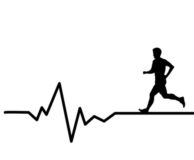
Why high-intensity interval training is a therapeutic option for patients with type 2 diabetes
I recently commented on an article published in the Journal of the American Medical Association that very well described why an excessive amount of liver fat is linked with poor cardiometabolic health and is a strong predictor of type 2 diabetes risk. It is generally accepted that increasing physical activity levels could decrease liver fat … Continued See More
Nutrition and heart disease: time to raise our standards
Fuelled up by the results of recent investigations highlighting the null relationship between saturated fat consumption (dietary fats from animal sources) and heart disease risk, an increasing amount of observers have called into question current recommendations of many health organizations around the world that currently suggest that the intake of saturated fats should be reduced … Continued See More
Heart disease prevention: risk factors don’t lie!
Despite marked improvement in some cardiovascular risk factors at the population level in the past 2-3 decades in Europe and North America, cardiovascular disease (CVD) is still the number one cause of mortality and the prevalence of patients coping with CVD is increasing steadily in these regions. Most of the risk factors for CVD such … Continued See More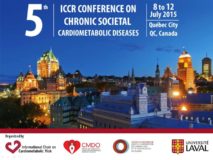
The science behind chronic societal cardiometabolic diseases and their prevention featured in Québec City
The 5th meeting of the International Chair on Cardiometabolic Risk held this year in Québec City, Canada just came to an end. Once again this year, the organizers managed to gather the best researchers and speakers working in several disciplines relevant to preventive medicine. This year, the focus of the 5-day meeting was set on … Continued See More
Highlights from the roundtable on abdominal obesity, London
The International Chair on Cardiometabolic Risk (ICCR) has been working to engage key influencers and decision makers in the health and nutrition sectors in the UK. As part of this, the ICCR hosted a roundtable in London in April 2014 which focused on the ICCR’s three key pillars: Eat Well, Drink Well and Move. These … Continued See More
Inaugural meeting of the European Alliance for Lifestyle Changes
The European Alliance for Lifestyle Changes is a platform involving relevant stakeholders aiming at preventing/managing abdominal obesity and type 2 diabetes and achieving ideal cardiovascular health by targeting eating/drinking and physical activity habits. Tuesday 17 December, 2013 Location: Hotel Sofitel Europe, Place Jourdan, Brussels Time: 14.00- 17.00 Lunch at 13.00 PROGRAMME: 1. Welcome 14.00 a) … Continued See More
Another successful meeting for the ICCR
The International Chair on Cardiometabolic Risk (ICCR) held the 7th meeting of its international academic board in Budapest, Hungary on December 13, 2008. On December 12, the Hungarian branch of the ICCR also held its formal plenary meeting. During this session, the national associations involved in the Hungarian branch, which is chaired by Dr. Csaba … Continued See More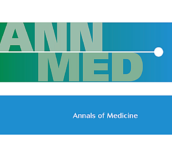
The concept of cardiometabolic risk: Bridging the fields of diabetology and cardiology
The Scientific Director of the International Chair on Cardiometabolic Risk and his colleagues have published another review paper on the concept of cardiometabolic risk in a recent issue of Annals of Medicine (Volume 40, number 7, 514-523). Although debate continues on the relevance of the metabolic syndrome concept in clinical practice, its diagnosis together with … Continued See More
Abdominal obesity/body fat distribution: Abdominal obesity is a serious health risk factor for mortality
The importance of abdominal obesity beyond overall general adiposity as a risk factor for total mortality has been confirmed in the largest prospective study ever conducted on the topic. In a recent paper published in the New England Journal of Medicine (Volume 359, number 20, 2105-2120), investigators of the EPIC study examined the association of … Continued See More
The International Chair on Cardiometabolic Risk rewards the best three European articles on abdominal obesity and cardiometabolic risk
The Chair is pleased to announce the winners of the European Media Prize, as selected by a jury of three internationally renowned experts: Prof. Jean-Pierre Bassand, Cardiologist (France), Prof. John Betteridge, Endocrinologist (UK), and Prof. Eberhard Standl, European Association for Cardiovascular Prevention & Rehabilitation (Germany). They unanimously recommended the following winners: Boris Hansel (France) for his … Continued See More
European Media Prize at the European Society of Cardiology (ESC) meeting
The International Chair on Cardiometabolic Risk will announce this year’s winners of its European Media Prize at the European Society of Cardiology (ESC) meeting in September. The objective of the European Media Prize of the International Chair on Cardiometabolic Risk is to raise awareness of abdominal obesity as a key risk factor for the development of … Continued See More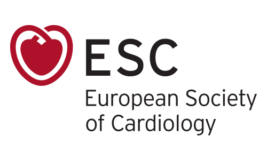
The International Chair on Cardiometabolic Risk at the ESC in Munich
The Chair will be hosting a symposium on Monday, September 1, during the European Society of Cardiology (ESC) meeting in Munich. The symposium, chaired by Drs. Jean-Pierre Bassand and Pekka Puska, will provide an opportunity to hear Drs. Steven M. Haffner, Ph. Gabriel Steg, Luis M. Ruilope and Jean-Pierre Després discuss the importance of targeting … Continued See More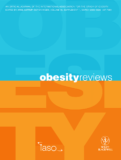
Waist circumference measurement protocol and relationship to morbidity and mortality: An expert panel of the International Chair on Cardiometabolic Risk to publish in Obesity Reviews
The International Chair on Cardiometabolic Risk put together a panel of experts in obesity identification/management and obesity-related epidemiology. The panel reviewed the literature in order to evaluate what influence the various measurement protocols have on the relationship of waist circumference to: 1. morbidity from cardiovascular disease (CVD) and type 2 diabetes, 2. mortality from all … Continued See More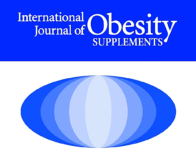
International Chair on Cardiometabolic Risk to publish a supplement in the International Journal of Obesity
The International Chair on Cardiometabolic Risk meets twice a year to discuss a significant issue or topics requiring further studies. The Chair chose to add to the debate surrounding the controversial and much-discussed role of the metabolic syndrome and of cardiovascular risk by inviting the investigators of major worldwide epidemiological studies to share their thoughts … Continued See More
The International Chair on Cardiometabolic Risk at the EAS in Istanbul
The Chair will be hosting a symposium on Sunday, April 27, during the European Atherosclerosis Society (EAS) meeting in Istanbul. The symposium, chaired by Drs. Tokgözoglu and Van Gaal, will provide an opportunity to hear Drs. Tokgözoglu, Brewer, Taskinen, Després, and Van Gaal discuss issues relevant to the dyslipidemic state of abdominal obesity and its … Continued See More
Inauguration of the Hungarian Branch of the International Chair on Cardiometabolic Risk
The International Chair on Cardiometabolic Risk is pleased to announce that it has opened a regional branch in Budapest, Hungary. The official inauguration was held on February 15, 2008 and was attended by Ms. Katalin Rapi, Secretary of State for Health Policy. Also in attendance were the rectors of several Hungarian universities as well as … Continued See More
The International Chair on Cardiometabolic Risk is pleased to announce the creation of its first affiliate with the establishment of a Hungarian branch
The Hungarian Cardiometabolic Foundation and the Hungary-wide network of Cardiometabolic Prevention Centres are directed by Dr. Csaba Farsang, who is also head of Hungary’s first hospital department on cardiometabolic diseases, based at St. Imre Hospital in Budapest. The Foundation is a multidisciplinary organization focused on several fields of study, including abdominal obesity, diabetes, endocrinology, lipidology, … Continued See More
The International Chair on Cardiometabolic Risk Bi-Annual Meeting, Paris, France, December 15, 2007
The Academic Board of the International Chair on Cardiometabolic Risk held another very successful meeting in Paris on December 15, 2007. The theme of the meeting was Abdominal Obesity, Insulin Resistance and the Metabolic Syndrome: Contribution of Physical Activity/Exercise. The Paris meeting was quite special as it recognized the landmark contributions of two pioneers in … Continued See More
The Chair announces the creation of the “Jean Vague/Per Björntorp Memorial Award Lecture”
The Academic Board of the International Chair on Cardiometabolic Risk has held bi-annual meetings since the Chair’s launch in December 2005. These meetings have led to the publication of reviews, articles, and thematic papers to appear in supplements of scientific journals. For example, the discussions arising from a previous Chair meeting in New York in … Continued See More